Notes on notes: 5 tips for effective note-taking
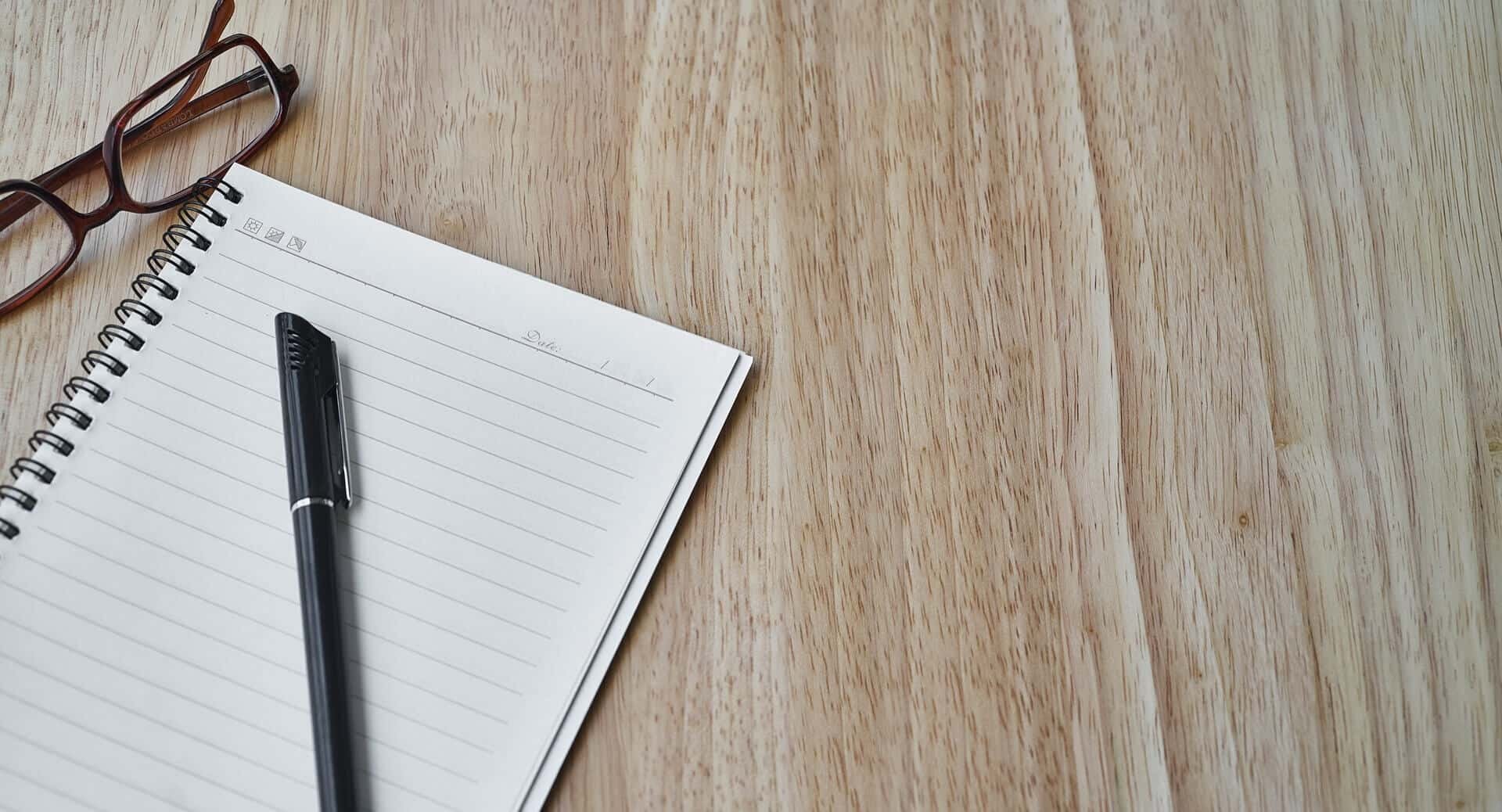
Have you ever been in a situation where you wish you could recall something someone said in a meeting?
Do you think, “I’ll remember that, so I won’t write it down?”
Do you get so wrapped up in your own thoughts that you aren’t fully comprehending what’s being said?
Effective note-taking leads to not only a better understanding and comprehension of a discussion but also works as a tool to more accurately document and recall important information. It seems simple, but it’s a crucial skill, especially as video meetings have remained the standard across the information economy, presenting new challenges for our focus and comprehension.
If you’ve always wanted to improve your note-taking skills, you’ve probably read endless articles about ways to take detailed, helpful notes. You may have chalked up your failure to not using the right color-coding methods or templates. But after a deep dive into the real reasons most aren’t effective note-takers, it came down to a few factors you could implement into your daily work life. They can change the way you take notes and transform the way you’re able to communicate with coworkers and clients alike.
Effective Listening
Each day, we’re inundated with millions of bits of information, so it’s not unusual to become overwhelmed with trying to not only process but also lock-in information we find interesting or something we might need to recall later. According to Fast Company, we process more than 100,000 words in a day during our leisure time and even more during a work day.
Having to constantly process this much information can be taxing, and we’re bound to become distracted at some point.
Have you ever been listening to someone speak, and you suddenly begin crafting your response in your head only to realize you’ve missed what the person was saying? It happens all the time. Glenn Taylor, President and Founder of Skybound Coaching and Training, suggests a few ways to be a more effective listener.
Get out of your head
In a world of constant distractions and thoughts of the ever-growing to-do lists, it’s a common occurrence for our brains to shift gears at the most inopportune times, especially during work meetings or conversations with clients. Our internal monologues are major distractions, and they get in the way of effective listening and accurate note-taking. Self-awareness is key, so if you catch yourself in an important conversation, suddenly remembering you needed to buy milk or you forgot to respond to an important email, you need to practice intentionally bringing yourself back to the conversation, be present, and do your best to stay focused.
Be vulnerable
Effective listening is just as much a skill as effective speaking. We can often become distracted by worrying about our next response or thinking of the next question to ask.
This only distracts us from what the speaker is saying. As Glenn says, “If you’re not focused on what’s being said, you’ll be less prepared to respond and connect authentically. Listening takes courage to quiet the inner critic, get out of ourselves, and put focus on the other.” Focus on what the person is saying, and your notes will not only be more detailed, but more accurate and void of unnecessary distractions.
Also, keep in mind there’s a difference between hearing and listening. Communication coaching site Speakeasy breaks down the difference between the two and states “most people assume that listening is a natural activity…one requiring minimal effort by anyone without physical impairment. However, it’s not that simple because listening is a complex activity of both physical and emotional skills.”
Truly listening while taking notes is imperative to comprehending and digesting accurate information.
Be Prepared
Prepare an outline or baseline for your notes prior to a meeting. If you spend some time creating an agenda, gathering potential topics, talking points, and questions to ask, you’ll go into a meeting feeling more comfortable and organized. If time allows, you can send the agenda to all parties involved prior to the meeting.
In preparing your agenda and note outline, you won’t need to document every single word being said in the meeting. The Learning Center at the University of North Carolina explains the key points to listen for and document in your notes are:
- Introductory remarks, which often include summaries or overviews of main points
- Signal words or phrases like “There are four main…” or “To sum up…” or “A major reason why…”
- Repeated words or concepts
- Non-verbal cues like pointing, gestures, or vocal emphasis on certain words
- Final remarks, which often provide a summary of the important points of the meeting
Structure Your Notes
The key is finding out how you best organize your notes, and that might mean experimenting with different styles. Just because one method works for one person, doesn’t mean it will work for you. Lifehack.org lists the three most common methods of organizing your notes: the Cornell method, the Outline method, and the Charting method.
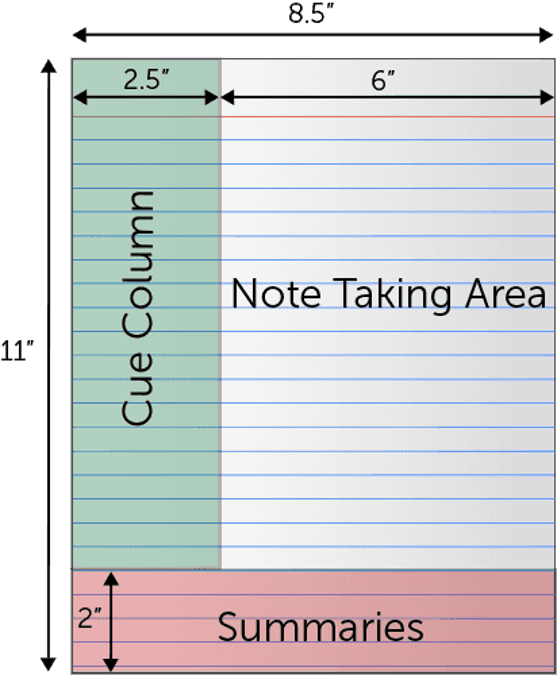
The Cornell Method
The Cornell note-taking method helps organize notes into summaries that are easy to digest. This method is convenient because the main points, details, study cues, and summary are all kept in one place. Notes are taken using the main section, and after the meeting concludes, write down things you’ll need to remember and a prompt for each in the cues section so you can review your notes. Finally, write a summary of your notes in the segment at the bottom.
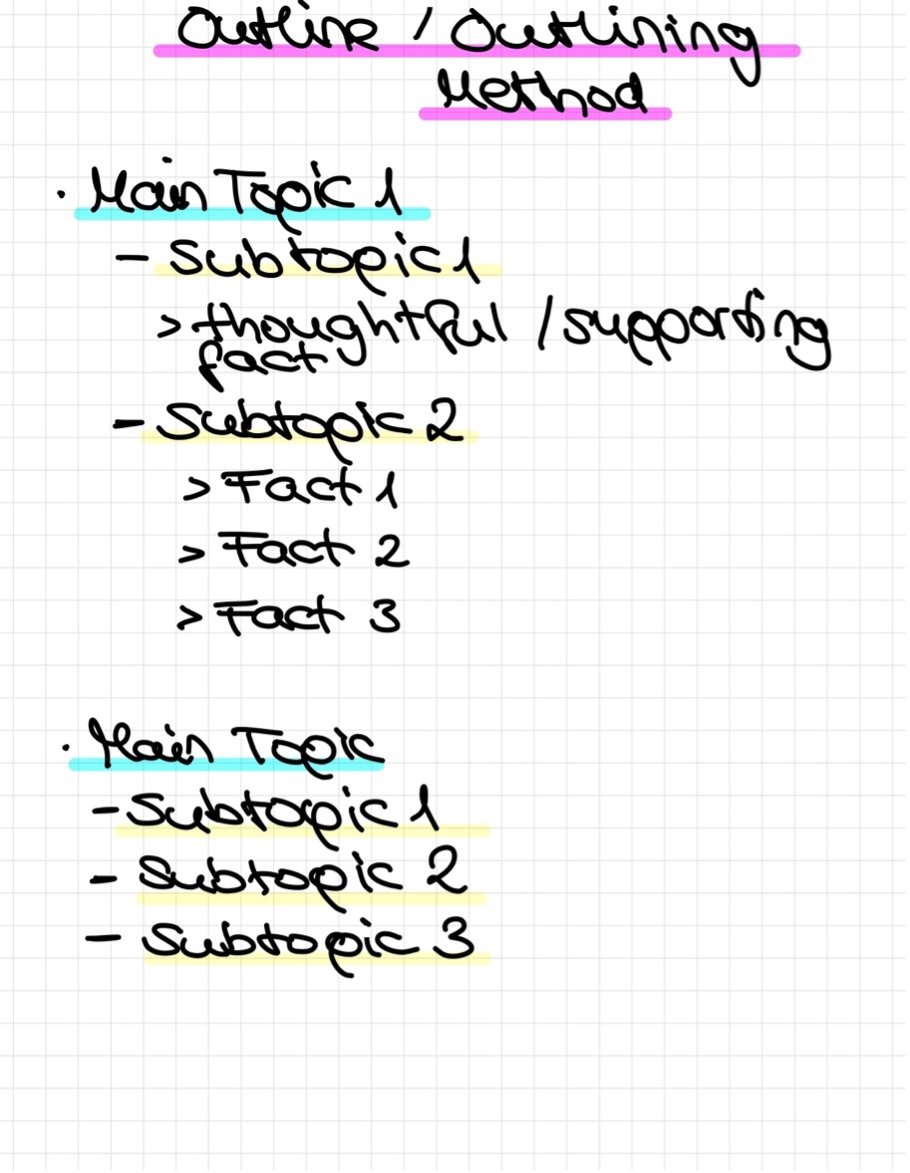
The Outline Method
The outline method is one of the best and most popular note-taking methods for students and professionals. It allows you to organize your notes in a structured format. This helps save a lot of time for further reviewing and editing.
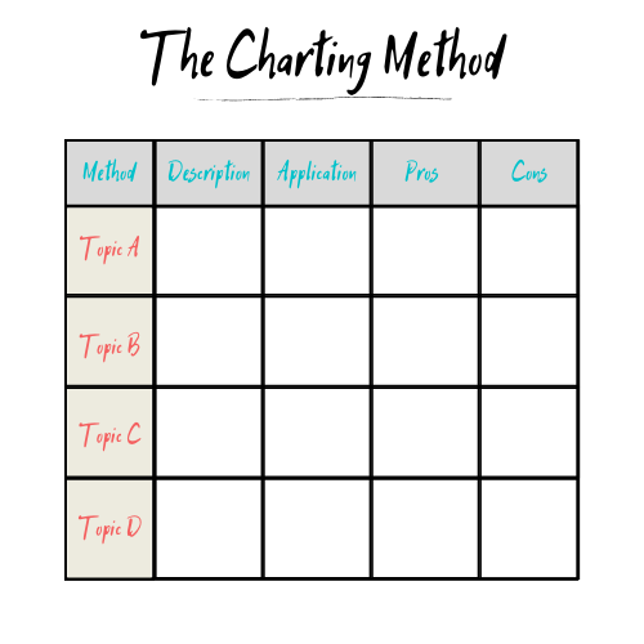
The Charting Method
This is a practical and organized method for note-taking that involves a lot of data in the form of facts and statistics you need to learn thoroughly. The info will be jotted down in several columns, similar to a table or spreadsheet. Each column represents a category, making the rows easily identifiable.
Review Your Notes
It’s imperative you read through your notes immediately following the meeting while the information is fresh on your mind. You can add key takeaways, next steps, and to-dos. It also helps to have a peer review the notes as well as there might have been something that was heard by one team member but missed by others.
Final thoughts? Find the best organization method for you and improve and implement effective listening skills.
Get out of your own head and focus—it’s a game changer.
More Blog Posts

Let’s be real—communication at work is kind of like a group chat. Some people over-share, some barely respond, and others...
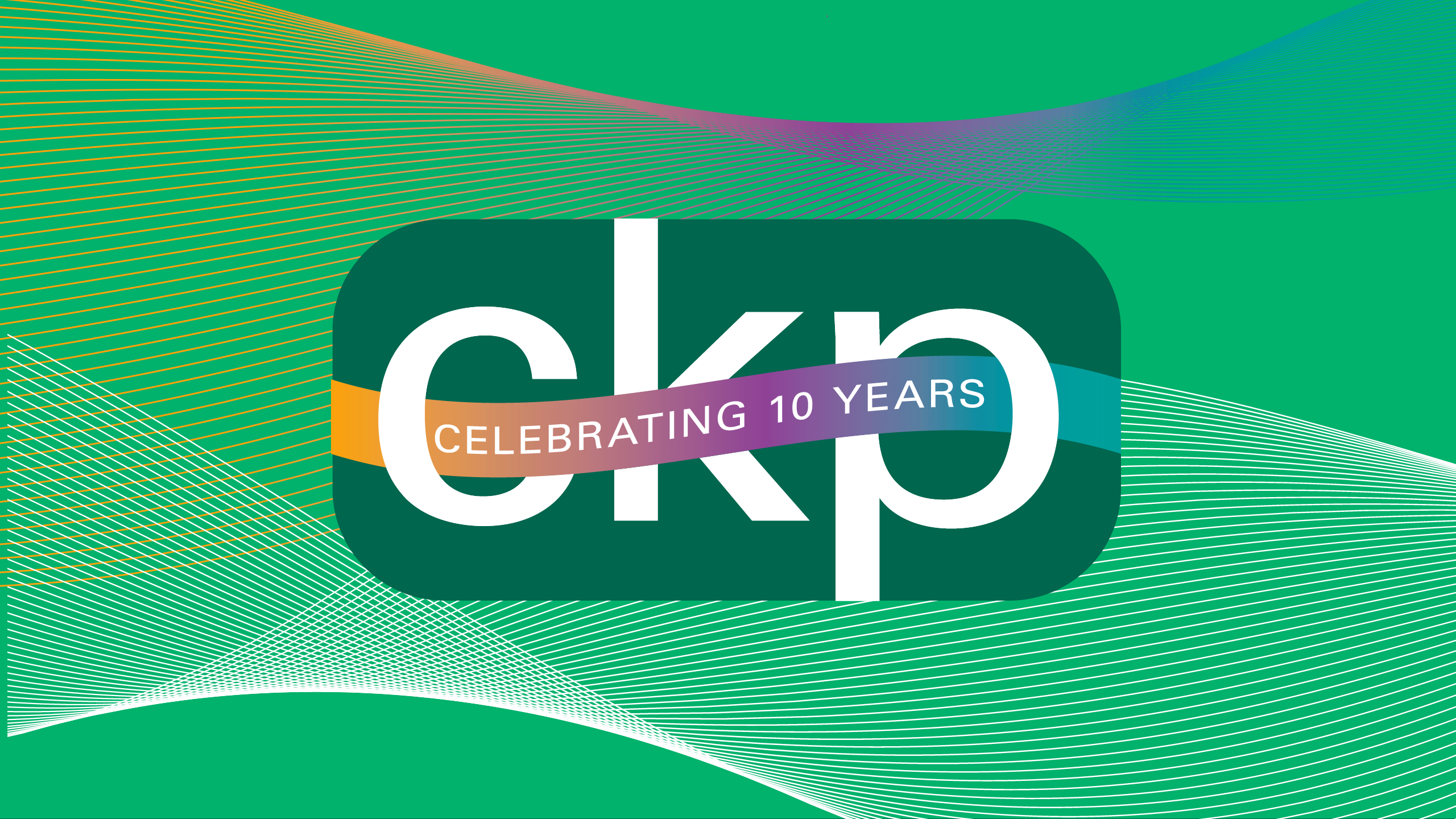
Once upon a time, PR meant faxing a press release and hoping someone, somewhere, had paper in their machine. All...

Employee Appreciation Day, recognized on the first Friday in March, will be celebrated this year on March 7. It is...

1. The Power of Sustained Impression (Or: Stop Passing Out at First Dates) Let me tell you about a date...

